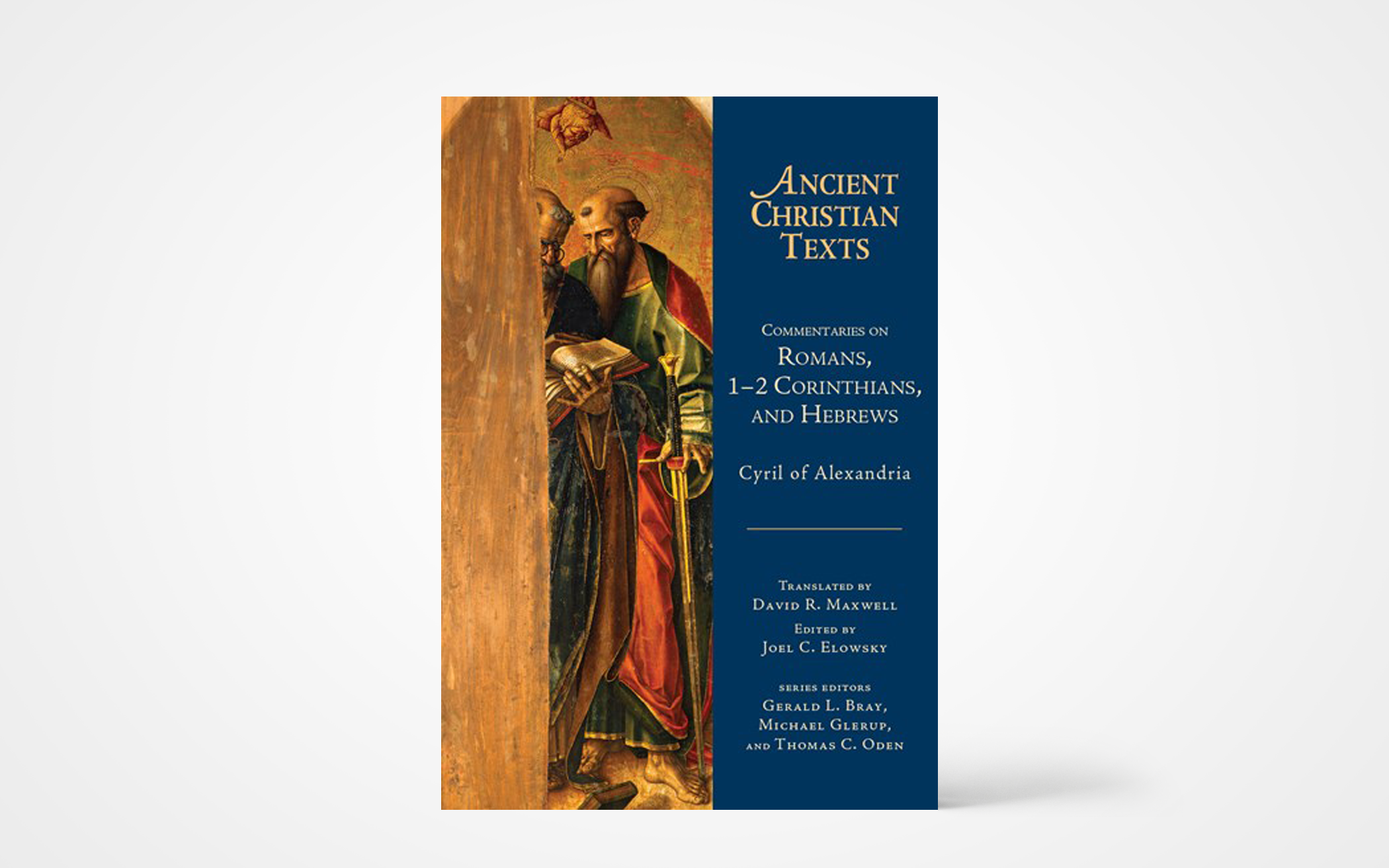“He is God by nature, and he became man while remaining God.” — Cyril of Alexandria
For the first time in English, the collected comments of Cyril of Alexandria (A.D. c.378-444) on four key New Testament epistles appear together in one volume, the latest in IVP’s Ancient Christian Texts series.
David Maxwell teams up again with editor and colleague Joel Elowsky to translate surviving quotations collated from various Greek and Syriac fragments. Maxwell, professor of systematic theology at Concordia Seminary in St. Louis, Mo., and Elowsky, professor of historical theology, also at Concordia, previously collaborated on Cyril’s commentary on the gospel of John, a two-volume set illustrating Cyril’s “breathtaking mastery of the contents of the Bible.”
Maxwell, who lists his primary interest as Christologies of the fourth to sixth centuries, introduces the ancient texts by describing lists called “catenae” (literally “chains”) used as teaching tools. In these texts, quotations from various church fathers appear in lists under the passage, one verse or passage at a time. Think Parallel Bible only with parallel commentaries.
Cyril’s commentary on Romans 8 and 9 includes comments on Paul’s description of calling and election. God calls all people to himself and has mercy or hardens as he chooses: “No one is without a share of the grace of being called. … When he says ‘all,’ he is excluding no one.” Paul anticipates an objection to election: some might say in response to God’s hardening as he chooses, “Why does he still find fault with us?” Cyril explains: “They are not allotted a nature that is created that way, but they receive a fitting reward that is commensurate with their deeds.” And further, “It is sufficient to maintain and think that God could never be the creator of anything bad.”
In the 1 Corinthians commentary, Maxwell’s expertise helps readers understand variations in medieval manuscripts. A parallel presentation of primary sources shows readers the variation, and Cyril’s comments appear underneath them.
Cyril’s Christology shows in his comments on Paul’s greeting in 2 Corinthians 1. Grace and peace come “from God our Father and the Lord Jesus Christ.” Cyril argues that “if Christ is the supplier of the things that God the Father himself supplies, does that not make him God by nature according to the union with his own flesh?” Interestingly, Cyril describes this knowledge of Christ, which Peter confesses, “You are the Christ, the Son of the living God,” as being given to Peter by “mystagogy,” a gift from God, since “the mystery was immense.” Cyril’s framing suggests that his audience included those influenced by the rejection of Jesus as the Christ, namely the Jews, and those who denied the deity of Jesus, more specifically, the thinking of another Alexandrian named Arius (A.D. c.250–c.336).
The elegant simplicity of Cyril’s Christology is most clearly seen in his comments regarding Hebrews 1:1-3:6: “He is God by nature, and he became man while remaining God.” His 22-pages of comments on this same passage clearly show why Cyril’s influence in Christology continues even today.
Thank you, David Maxwell, Joel Elowsky, and the editors of the Ancient Christian Texts series, for introducing today’s Bible students to the enduring words of Cyril of Alexandria. (IVP Academic)
About the Author
Dave Beach is an educator/counselor/author currently serving trauma survivors as the mental health director at the Johnson-Brower Foundation. He authored Following the Man of Sorrows: A Theology of Suffering for Spiritual Formation and co-authored The 7 Pillars of SheWillStay and The Essential Bible Companion to the Psalms. He and his wife, Cynthia, own a publishing company, soulseasonspublishing.com. Visit him on Facebook at David R. Beach in Lowell, MI.

